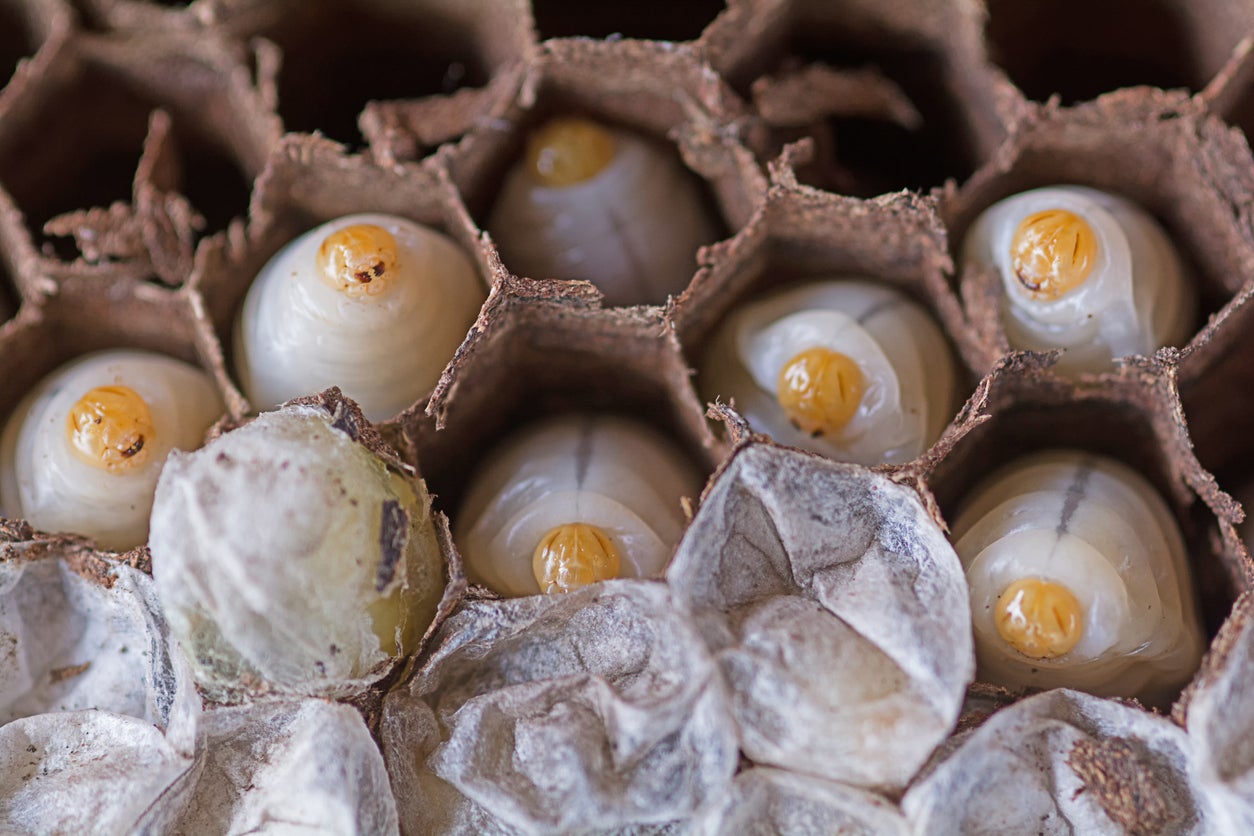Cannibal wasps ‘routinely’ eat siblings in nest, researchers find
Some 75 per cent of larval death was identified as sibling cannibalism, reports Matt Mathers


Wasp larvae “routinely” eat their siblings as they battle to make the transition to insects, a study has found.
Researchers at the Department of Biosphere Science at Kobe College in Japan examined brood reduction in wasps.
They looked at one species in particular, Isdontia harmandi, to determine how much brood reduction is linked to sibling cannibalism.
For their study, the researchers collected wasp nests at various developmental brood stages from fields for five years between 2010 and 2015.
There was a significant decrease in the brood size between the nests sampled at the egg or hatchling stages and those at later stages when analysing only data excluding nests that were parasitized, attacked by predators, or containing deteriorated prey, the researchers said.
In whole brood-rearing experiments, the researchers said they confirmed that brood reduction occurred in 30 of 39 nests during larval stages and in 23 nests after cocoon stage.
Larval survival was affected positively by total prey weight and negatively by brood size, though cocoon survival was not affected.
Some 75 per cent of larval death was identified as sibling cannibalism through observation by time-lapse recording on multi-larvae rearing experiments, the researchers said, in a paper published in the Plos One journal on Wednesday.
“We…confirmed that brood reduction occurred in the whole brood-rearing experiment,” the researchers said in their conclusion.
“Furthermore, in multi-larvae rearing experiments, we observed many cases of sibling cannibalism.”
They added: “If we could regard ten cases of larval disappearance in this experiment as missed cases of cannibalism, percentages of wasps died of sibling cannibalism in the total population, and total mortality might jump up to 52 per cent and 98 per cent, respectively.
“Therefore, we conclude that brood reduction routinely occurs by sibling cannibalism in the communal brood cell of Isodontia harmandi.”



Join our commenting forum
Join thought-provoking conversations, follow other Independent readers and see their replies
0Comments